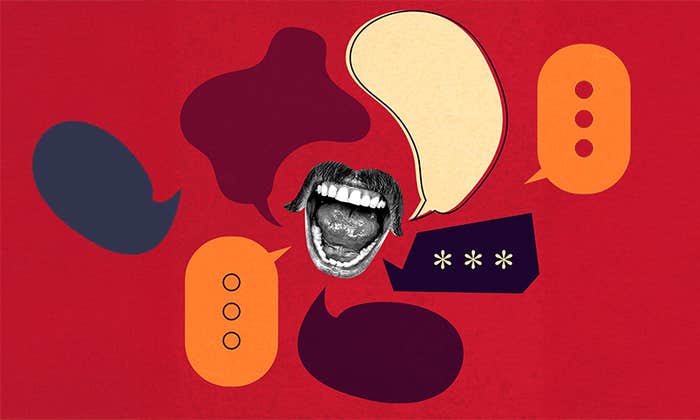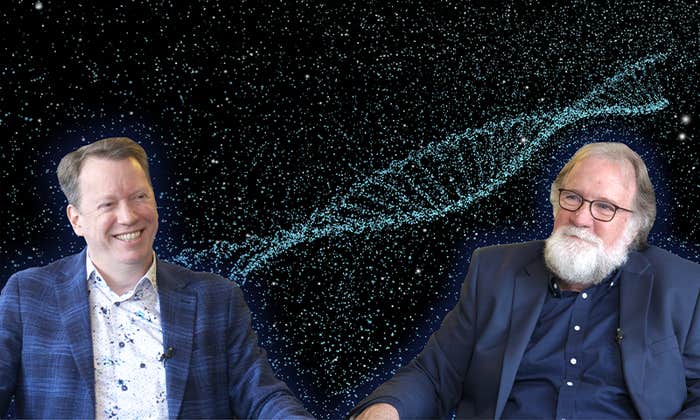
In George Bernard Shaw’s play Pygmalion, professor Henry Higgins says: “You can spot an Irishman or a Yorkshireman by his brogue. I can place any man within six miles. I can place him within two miles in London. Sometimes within two streets.” British English is famous for its variety of accents, and Higgins had real prototypes, linguistic Sherlock Holmeses who could discern a speaker’s origin from a phrase or two. They knew that tiny idiosyncrasies of speech could be fraught with personal information. The first person to reveal this scientifically was an American linguist, William Labov.
When Labov moved to New York City in the early 1960s, he noticed that some working-class New Yorkers sounded different from middle and upper-class dwellers. One feature stood out to him: the pronunciation of the r sound, which working-class people tended to drop. Labov suggested that the difference in pronunciation can be linked to a speaker’s class, as our social differences manifest in speech. To show this, he chose three department stores—a high-end Saks Fifth Avenue, a middle-class Macy’s, and a now-defunct discount store S. Klein’s—and spent several hours pestering employees with questions.
“He’d go up to employees working in the store and say something like: ‘Excuse me, can you tell me where to find men’s ties?’ ” explains Cecelia Cutler, professor of linguistics at the City University of New York. “The employees would say ‘fourth floor.’ Or they might say ‘fauth flaw’—with no r.” Labov would rush around the corner, pull out a notebook, and scribble, marking whether the person used or dropped the sound. He always chose questions that lead to a single answer, “fourth floor,” and in two days, surveyed 264 people. “He found that the working-class store had the greatest rates of r dropping,” says Cutler. People in the discount store dropped the r sound eight times more often than in the luxury store.
The Social Stratification of English in New York City, Labov’s 1966 book, was groundbreaking. Labov took something as small as one letter and showed how a subtle detail of our language could tell who we are. Today, Labov is known as a father of sociolinguistics, the study of how language and society influence each other. In time, sociolinguists discovered that a particular pronunciation could reveal not only a person’s class and origin but education, ethnicity, age, and even sexual orientation. A whole new field of science came out of an observation about the peculiarity of the r sound in New York. But why that sound?
“It could be any sound. It’s not the sound in particular that necessarily matters,” says Cutler. In English, there is no “perfect” articulation for the r sound. Different dialects show at least seven alternative pronunciations. It is also true for all other sounds—there is no standard for each phoneme in any language. Usually, we grasp all the sounds of our native language by the age of eight, and when we use a particular tongue shape, it creates distinctive acoustic features that can indicate our background. “If you look very carefully at almost any language, you’ll find linguistic features that become socially meaningful to people,” says Cutler. “This is the way we distinguish one another. In terms of r itself, there’s no particular reason—except that there’s a lot of variation in r.”
Languages and their dialects are in constant flux. If Shakespeare time-traveled to 2019, the modern North American accent could sound more British to him than the contemporary British at least in terms of the r sound: In the 17th century, England had yet to lose it. The empire hadn’t gone r-less until the late 18th century, and some of its earlier colonies, like Canada and the US, speak another variety of English. The British accent, including its newfangled r-lessness, was considered prestigious in the States. It influenced eastern and southern American port cities, inspiring peculiar Boston and New York accents. After the Civil War, the prestige started shifting toward so-called rhotic accents of non-coastal parts of the country. The shift accelerated after the Second World War—Labov’s survey captured it right in its peak, when working-class New Yorkers haven’t yet grasped the change that middle and upper-class people already had.
By estimates, R is the fourth most frequent consonant in the English language. What makes the r sound stand out is that it is salient to our ear. An urban legend claims that the French got their guttural R because the King, Louis the XIV, couldn’t pronounce a strong R. (Today, to nail that pronunciation, foreigners exercise gurgling water in the back of the throat.) In Latin, R was nicknamed canina litera—“dog’s letter”—for its resemblance to a snarl, and in Spanish, Italian, and Russian, the sound is still trilled. In some East Asian languages, like Japanese and Korean, the r sound is so close to l that there is a single symbol for both. Sometimes, R can even transform into a vowel, like in North American pronunciation of English words “nurse” and “butter.”
There is a separate branch of linguistics devoted to this phoneme, called rhotics, and even a conference, where for three days in a row, scientists from 17 countries talk about all things R. “People actually debate whether it is a true class of sounds that should be identified with each other across languages or we group them mostly because of orthography. They’re written with a letter R across languages, so we consider them all the same sound. But if you look at them acoustically, articulatory they have a lot of differences between them,” says Tara McAllister Byun, a linguist and speech-language pathology professor at New York University. “The English r sound is notoriously difficult. It is extremely late to emerge in development. Developing children up to the age of eight may still be arriving at an adultlike pronunciation of the r sound, whereas most phonemes come in much earlier in development.”
For the past five years, she has been leading an interdisciplinary team developing an app—staRt, “Speech Therapist’s App for r Treatment”—that uses visual-acoustic biofeedback to treat rhotacism, mispronouncing the r sound. Rhotacism is one of the most common and challenging speech errors: no verbal, visual, or tactile cues can clearly explain how to enunciate the r. Sometimes, children don’t hear the difference between correct and incorrect r sounds, which makes it even more challenging to improve.
“You are twisting your tongue into a complex shape, and that is motorically more complex than producing a single major constriction for a sound like a or u,” says McAllister Byun. In other words, r is tricky for the tongue because we have to twist in a fancy way. It’s like a complicated dance move that could take weeks to learn—like moonwalking.
By now, I used R about 300 times in this article. The combination of frequency and diversity makes the R a perfect social differentiator, a marker of our identity. Our speech holds dozens, if not hundreds, of markers like this. Imagine if we could read them all—it’d be like a superpower. All it takes to uncover it is to start paying attention to small details, the r sound being the most conspicuous.
Sevindj Nurkiyazova is a journalist from Kyrgyzstan. Follow her on Medium @calempir.


























